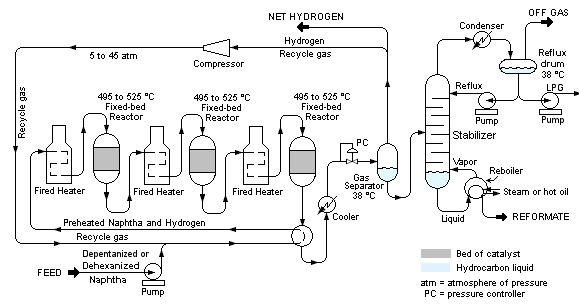
Cascade (chemical engineering)
Encyclopedia

Chemical engineering
Chemical engineering is the branch of engineering that deals with physical science , and life sciences with mathematics and economics, to the process of converting raw materials or chemicals into more useful or valuable forms...
, a cascade is a plant consisting of several similar stages with each processing the output from the previous stage. Cascades are most commonly used in isotope separation
Isotope separation
Isotope separation is the process of concentrating specific isotopes of a chemical element by removing other isotopes, for example separating natural uranium into enriched uranium and depleted uranium. This is a crucial process in the manufacture of uranium fuel for nuclear power stations, and is...
, distillation
Distillation
Distillation is a method of separating mixtures based on differences in volatilities of components in a boiling liquid mixture. Distillation is a unit operation, or a physical separation process, and not a chemical reaction....
and other separation or purification processes.
Examples
If a stillStill
A still is a permanent apparatus used to distill miscible or immiscible liquid mixtures by heating to selectively boil and then cooling to condense the vapor...
removes 99% of impurities from water (leaving .01 the original amount of impurities), a cascade of three stills will leave (1-0.99)3 = 0.000001 = 0.0001% the amount of impurities (99.9999% removed).

